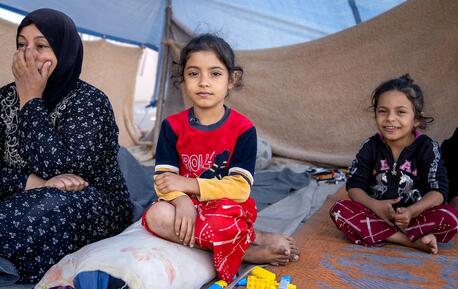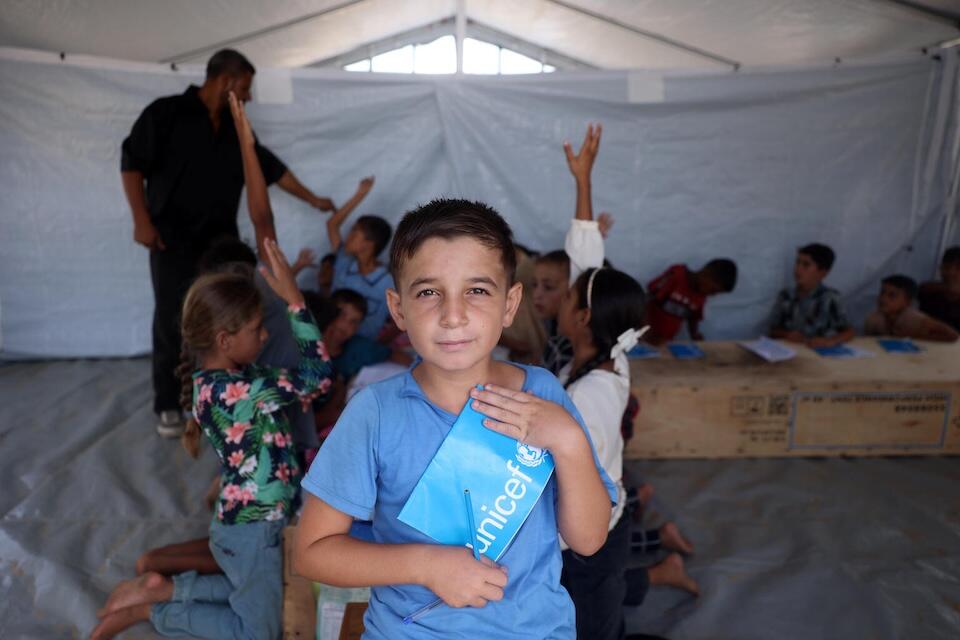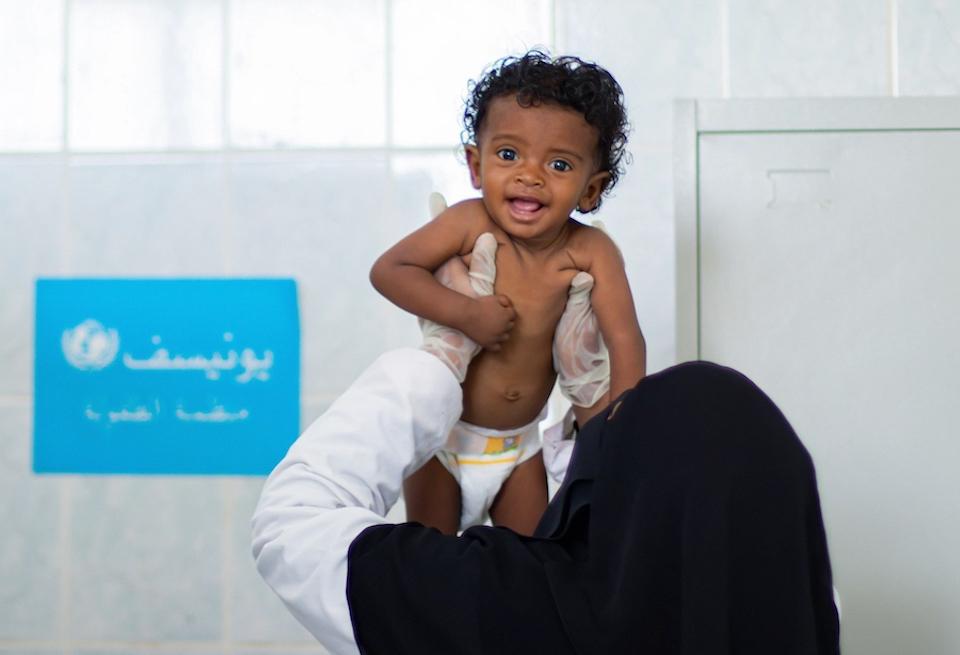
UNICEF in the Middle East
UNICEF coordinates with partners to respond to emergencies and meet urgent humanitarian needs of children and families affected by conflict and related crises in Gaza, Lebanon, Syria, Yemen and other countries across the region. Learn more about what UNICEF is doing in the Middle East to support and protect children.
Deepening humanitarian crises in the Middle East
Armed conflicts. Extreme poverty. Climate shocks and natural disasters. Food insecurity. These and other crises have displaced millions of children and families in the Middle East, intensifying humanitarian needs.
Alongside partners, UNICEF teams are on the ground reaching children and families in the Gaza Strip and the West Bank, Iran, Iraq, Jordan, Kuwait, Lebanon, Oman, Qatar, Saudi Arabia, Syria, Türkiye (Turkey), United Arab Emirates and Yemen.
UNICEF has also been scaling up emergency interventions to support and protect children and families affected by escalating conflict following the Oct. 7, 2023 attacks on Israel.
Together with partners, UNICEF delivers lifesaving relief while working to shore up essential systems and advance longer-term solutions to strengthen community resilience to future crises.
Priorities include ensuring access to safe water and health care, including essential vaccinations; preventing and treating malnutrition; protecting children from violence, exploitation and abuse and supporting their mental health. UNICEF also works to maintain or restore children's access to quality education.

Escalating conflict in the region and UNICEF's ongoing emergency response
The Gaza Strip has become the most dangerous place in the world to be a child. Increasing hostilities on the Lebanon-Israel border have compounded existing crises in both Lebanon and Syria.
Despite enormous difficulties in delivering supplies and services — including continued air strikes, fuel shortages, communications blocks and attacks on medical and humanitarian personnel and facilities — UNICEF continues to make an impact on the lives of children caught in conflict by fighting malnutrition, shoring up health services, delivering vaccines and safe water, improving sanitation, scaling up humanitarian cash transfer programs and delivering learning, mental health and psychosocial support, among other child protection services.
UNICEF focuses not on the causes of conflict, but on the consequences for children. In high-income countries such as Israel, governments generally have adequate capacity to respond to emergencies. Upon request from the government, UNICEF can extend support.
Learn more about UNICEF's role in Israel, Gaza and the West Bank.
Sharp escalation in conflict in Lebanon in September 2024 has had a devastating toll on children and families already reeling from economic instability and related crises. Health and education systems are fragile, and many more children are at risk of sinking into poverty. UNICEF and partners continue to scale up support and protection to meet urgent needs.
Learn more about what UNICEF is doing in Lebanon and how to help.
"The lives of children in Lebanon, children in Palestine, and indeed children in Israel and across the region have been devastated by conflict," UNICEF Deputy Executive Director Ted Chaiban said on Oct. 16. "All these children desperately need an end to the violence that steals their safety, their education and their very childhoods. A ceasefire – ceasefires, plural — are not just a pause in fighting — they are the first step toward rebuilding lives and restoring hope."
UNICEF in Syria
The series of devastating earthquakes that struck northwest Syria and southeast Türkiye in February 2023 created a humanitarian crisis on top of multiple existing crises related to Syria's ongoing civil conflict and economic collapse. Displaced families arriving from Lebanon are intensifying needs all around.
Girls and boys in Syria need extra support to stay protected from violence, abuse and exploitation, including child labor and early marriage.
Ongoing interventions seek to improve health care for newborns and immunization rates among all children, address spikes in severe acute malnutrition and get out-of-school children back to learning, among other priorities.
Learn more about UNICEF's work for children in Syria and how to help.
UNICEF in Yemen
There are over 11 million children in need of humanitarian assistance in Yemen due to years of conflict, economic shocks, food insecurity and failing social systems.
UNICEF's priorities in the country include screening and treating children for malnutrition, immunizing children against measles and other vaccine-preventable diseases, helping to contain disease outbreaks and providing psychosocial support to children and families.
Emergency health and nutrition programs, along with water, sanitation and hygiene (WASH) and child protection interventions remain significantly underfunded.
Learn more about the ongoing humanitarian crisis in Yemen and how to help.

Learn more ways to help children in the Middle East
UNICEF relies on voluntary contributions from donor governments, civil society groups, businesses and others — including individuals — to help scale emergency interventions, sustain critical programs and maximize impact for children in need.
Every child has the right to a safe and healthy childhood. Support UNICEF today.
Your tax-deductible contribution can make a real difference. Every dollar counts. Learn more about different ways to give and how to help.